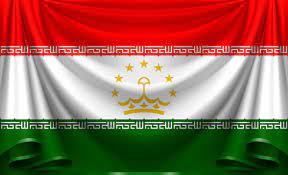Tajikistan’s GDP Surges in 2024 as Digital and Trade Reforms Take Center Stage
While the short-term outlook remains upbeat, the World Bank projects that GDP growth will moderate to 7.0 percent in 2025 and stabilize between 4.5 and 5.0 percent by 2026–2027.

- Country:
- Tajikistan
Tajikistan's economy maintained impressive momentum in 2024, with real GDP growth reaching 8.4 percent, and continuing strong into the first quarter of 2025 at 8.2 percent, according to the World Bank’s latest Tajikistan Economic Update released this week. The growth surge was driven largely by expansions in the services and industrial sectors, as well as robust domestic demand, bolstered by a sharp increase in remittance inflows and public sector wage hikes.
Remittances—primarily from Tajik workers abroad—rose to 49 percent of GDP in 2024, a significant leap from 39 percent in 2023. This inflow not only supported household consumption but also underpinned demand across the retail, construction, and small business sectors.
Medium-Term Growth Forecast Remains Strong but Expected to Moderate
While the short-term outlook remains upbeat, the World Bank projects that GDP growth will moderate to 7.0 percent in 2025 and stabilize between 4.5 and 5.0 percent by 2026–2027. This adjustment is attributed to several evolving factors:
-
Normalization of remittance flows, which are expected to decline slightly as global labor markets stabilize.
-
Ongoing global trade uncertainties, particularly in supply chains.
-
Weaker global demand for metals and minerals, Tajikistan’s key exports, with the exception of gold, which is projected to remain in high demand.
The report highlights that maintaining growth momentum will depend heavily on structural reforms, particularly those that attract private investment and enhance public sector performance.
Reform Priorities: Investment Climate, Competition, and Public Services
To unlock its full economic potential, Tajikistan needs to make strategic reforms that enhance its investment climate. These include:
-
Strengthening the competition framework to ensure a level playing field for businesses.
-
Streamlining investment procedures to reduce red tape and bureaucracy.
-
Enhancing investor protection rights to build trust and attract foreign and domestic capital.
-
Improving public service delivery through greater efficiency and accountability in the public sector.
These reforms are seen as critical to diversifying Tajikistan’s economy, which remains reliant on remittances, minerals, and limited industrial output.
Digital Transformation Seen as Key Growth Lever
A central theme of the report is digital transformation, particularly in the trade and public service sectors. The World Bank notes that Tajikistan stands at a strategic turning point, where adopting smart digital reforms could unlock vast economic benefits.
“Tajikistan stands at a crucial juncture in its economic development, where smart digital transformation can positively shape its trade prospects for years to come,” said Bakhrom Ziyaev, the World Bank’s Senior Economist for Tajikistan and lead author of the report.
The report emphasizes that digitalization could improve trade efficiency, create high-value jobs, and integrate Tajikistan into the regional and global digital economy. However, to realize these benefits, several barriers must be addressed.
Current Challenges: Connectivity Gaps and Regulatory Deficits
Despite increasing digital awareness, Tajikistan faces significant infrastructure and regulatory gaps:
-
Poor internet connectivity still affects nearly half of all customs checkpoints.
-
Lack of digital identity systems and paperless trade platforms hinders seamless transactions.
-
Data protection and cybersecurity standards remain underdeveloped.
-
Weak legal frameworks limit the implementation of electronic transactions and cross-border data flows.
-
Consumer protection mechanisms are insufficient, especially in the digital domain.
These deficiencies pose serious risks to digital trust and investor confidence and could hamper the country’s ability to benefit from regional trade corridors and the broader digital economy.
Path Forward: Key Policy Recommendations
To accelerate digital transformation, the World Bank outlines several priority policy areas for the government:
-
Enhance Digital Connectivity – Invest in infrastructure to ensure reliable and high-speed internet across trade hubs and rural areas.
-
Strengthen Cybersecurity and Data Governance – Build legal and technical systems to protect users and facilitate secure digital transactions.
-
Modernize Public Digital Services – Create a user-friendly and efficient government digital services ecosystem.
-
Support Legal Alignment with International Standards – Update e-commerce laws, data protection policies, and cross-border trade regulations.
-
Develop Human Capital – Train public officials, businesses, and traders in digital tools and trade facilitation systems.
The report stresses the need for performance monitoring mechanisms to assess progress and ensure accountability across all digital initiatives.
World Bank’s Continued Support in Tajikistan
The World Bank, one of the largest sources of funding and expertise for developing countries, is currently financing 26 active projects in Tajikistan, with a total investment of $1.9 billion. Its support spans infrastructure, education, health, agriculture, and now increasingly, digital and institutional reforms.
Through these initiatives, the World Bank aims to help Tajikistan reduce poverty, increase shared prosperity, and build a resilient, future-ready economy.










